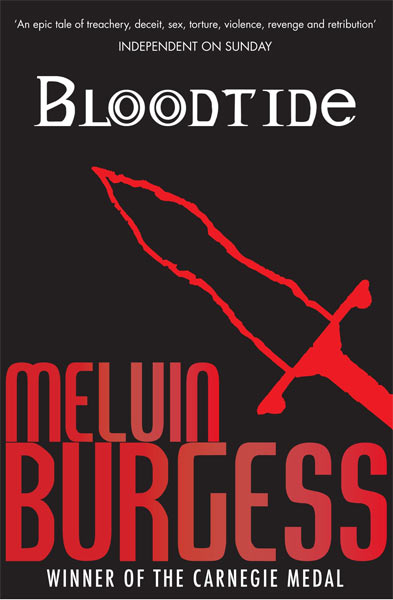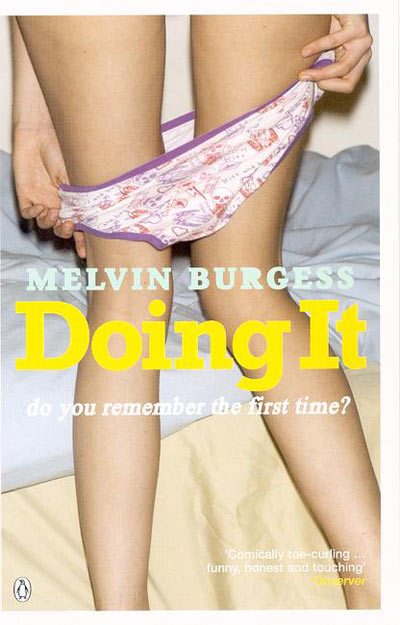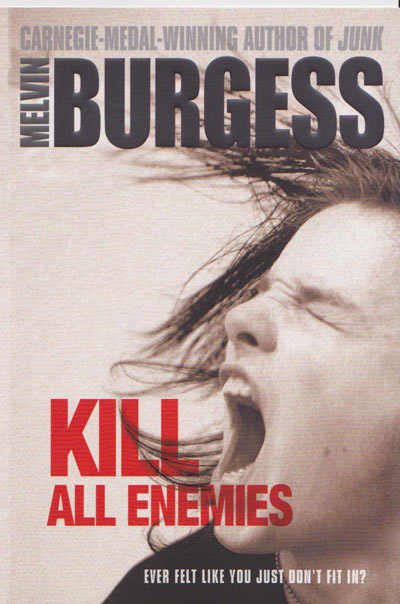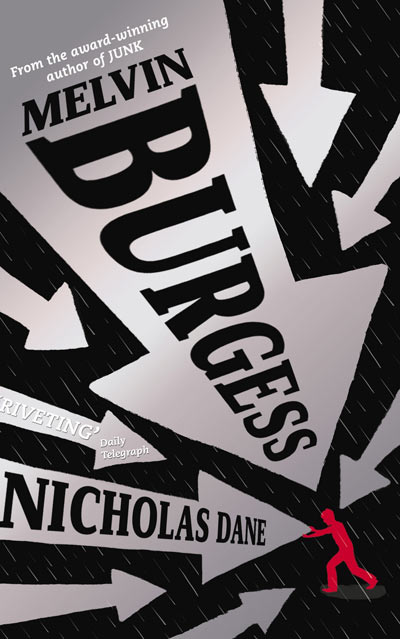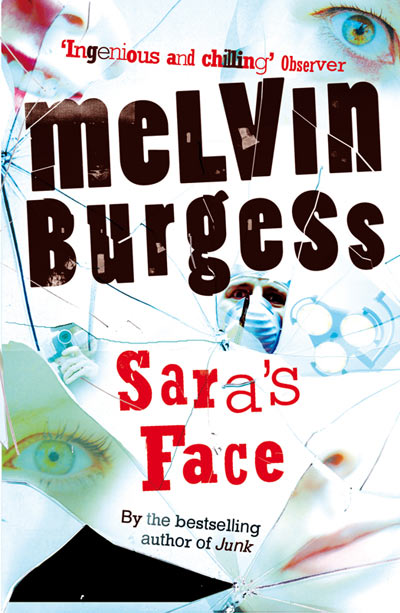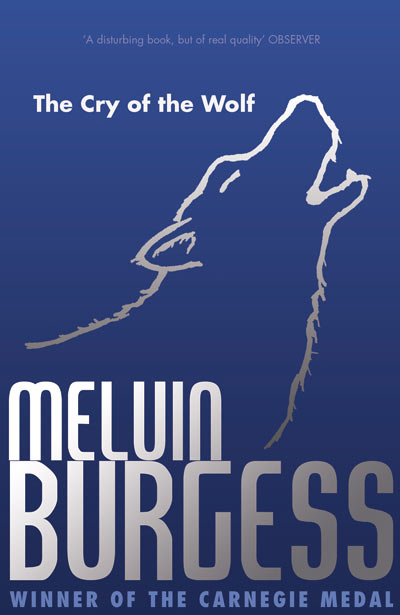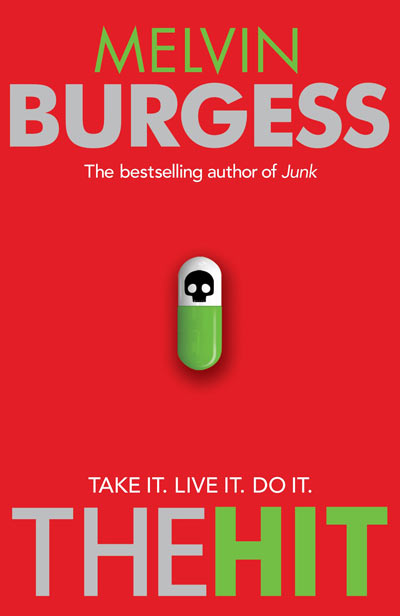Godfather of Young Adult fiction Melvin Burgess says authors shouldn't be writing crossover fiction for the adults. I talk to him about the state of YA and hear his tips on writing for teenagers.
Melvin Burgess knows how to write for teenagers – he was one of the first, and best, to write unashamedly and specifically for young adults. He blazed into national consciousness with his 1996 Carnegie Medal-winning novel Junk, and has since been either attacked or adored for his courage and honesty in writing frankly about issues such as drug addiction, teenage sexuality, violence or child abuse.
I first met Melvin Burgess in 2009, when he ran a writing course with Malorie Blackman at Lumb Bank, where I was Centre Director at the time. Luckily for me, ‘the Godfather of YA’ also lives in Hebden Bridge, so he very kindly offered to pop over for a cup of tea and answer some questions.
How did you start writing? I bet you don’t have a manuscript in the drawer.
‘Oh no, I’ve got a big pile of it, like everyone else. I wanted to be a writer since I was about 13. But I took a very long view. I felt it wasn’t a question of writing a book; it was becoming someone who writes books. The first fictional creation is yourself.
“The first fictional creation is yourself. ”
It wasn’t till I was 35 that I thought I’d better really find out if I can do this. I sat down and I wrote a children’s book, a radio drama and some short stories. I got my play on Radio 4; I sold a story to the London magazine; and I sold my children’s book, The Cry of the Wolf, which was shortlisted for the Carnegie. That was clearly the direction to take.’
Why did you choose to write YA?
‘YA didn’t really exist as a genre back then. There were certainly no teen books around when I was a kid. I thought I was writing children’s books, but when I started to visit schools, they were all aged 11 or 12. So it made me realise that nobody was writing for teenagers. That’s not entirely true – there were people like Robert Cormier, Aidan Chambers - but YA wasn’t a genre at that point.
What changed when you wrote Junk?
It crept about, because my books were considered too rough for kids. Books for older kids that had any sort of sex, drugs or rock-n-roll in it or violence – they were called ‘teen fiction’.
The thing was, the books said ‘14+’ on the back, but it didn’t mean they were read by people that age. The eleven-year-olds were delighted to be reading something too old for them, and their parents were probably quite delighted if they were reading it because it meant they had a high reading age.
So what was it like, when YA was brand new?
‘Back then, everyone said teenagers didn’t read. But of course when they have the right books, they do read.
It was a bit like Christmas really because there was a lot of stuff no one had done.’
Is that what made your work controversial?
‘A lot of the fuss about my earlier books was just because the press hadn’t really kept up with what was happening with fiction for young people. It all came as a great big dirty surprise: instead of Ratty, Moley and Fluffy Bunny, it was all about junkie whores.’
How has YA changed since you started?
‘Enormously. It wasn’t even a genre really … and now of course it’s the boom area. Someone was telling me that in the big bookstores in New York they put all the YA stuff at the front because that’s what everyone’s reading.
It really has changed, after Harry Potter, The Hunger Games, Twilight, although I suspect some of those things are more crossover. A lot of people get big crossover sales, but my books are more specifically for teenagers.’
What do you think about the idea of ‘crossover fiction’?
‘It’s so mainstream now. I remember a friend describing Twilight as “Mills and Boon for my generation.”
A lot of crossover fiction has been usurped by adults, but if you write stand-alone YA books it can still be difficult.
What’s wrong with adults reading crossover fiction?
There’s nothing wrong with adults reading crossover fiction. It’s wrong when people start writing for the adults reading it.
Then who is writing for the teenagers? Having said that, I don’t think that’s actually the case right now.’
“There’s nothing wrong with adults reading crossover fiction. It’s wrong when people start writing for the adults reading it. Then who is writing for the teenagers?”
What are you working on now?
I’ve been a bit ‘booked out’ lately. I’ve written about most of the things that I want to write about. But politics is an area that isn’t touched on much. Right now, there is an appetite for change and there’s a frustration at the lack of it.
People write about politics in issue books - so readers get politicized by what a tough life someone’s having and how bad it is in some parts of society - and that’s fine. However, the political novel like Orwell did, or a novel about politics can be very difficult.
I’ve been planning this one for ages. It’s contemporary political thriller, with sci-fi and fantasy elements. And it’s getting on - I will finish the first draft soon.
How many drafts does it normally take?
I don’t know. I start new drafts, and I save bits I’ve cut in a separate file in case I need them. It’s handy because it allows you to shed stuff without too much grieving. With this one, I’m on file number seven, but I haven’t even finished the first draft.
It’s a funny question. Some people do about 20 drafts from beginning to end, some people charge all the way through and then they go over it afterwards very carefully. I do a mixture of the two. And my drafts and your drafts might be a very different thing.
And when would you show it someone?
It varies. I show it to Anita, my other half. I’ve got a friend who I trust very much and who likes my stuff. It’s always a good idea to show it to someone first who likes your stuff, so it’s not too much of a slap! You can save your editor for later. I also have my agent who I like very much.
Whose work do you currently admire within this field?
David Almond’s new book is beautiful. It’s the most lovely thing he’s written in a long time: A Song for Ella Grey.
I’m very keen on Kevin Brooks’ writing: it’s different and very strong. I enjoy Lucy Christopher’s books. Meg Rosoff’s very good. Patrick Ness’s A Monster Calls is very beautiful: a real tear-jerker.
The books I really like have to be about something.
I feel as though YA is in a bit of a rut at the moment. It needs it needs someone to come in and kick it around a bit.
“I feel as though YA is in a bit of a rut at the moment. It needs it needs someone to come in and kick it around a bit. ”
It’s settling into its mainstream, but that’s what happens. When I started writing you could get up to all sorts of things but the modes are established now and it’s calmed down rather a lot. It’s partly due to the recession, with publishers being more cautious, but it’s a shame. I think people should be a little more experimental.
What are your tips for someone starting out?
· Become a person who writes books. That’s your first fictional creation.
· Take the long view. Assume your next 3 or 4 books aren’t going to be published and practise writing books. Write short pieces and long pieces.
· Be open-minded about what you write.
· Keep practising. I get asked this in schools and I always tell them about the law of 10,000 hours. To be a master you have to practise for 10,000 hours. It sounds like a long time, but if you’re doing it every day, it’s not.
· And with writing, you can always say that reading counts.
And that seems a good place to end, in praise of reading. Thank you, Melvin!
Follow Melvin on Twitter here; or link to his website here melvinburgess.net.


